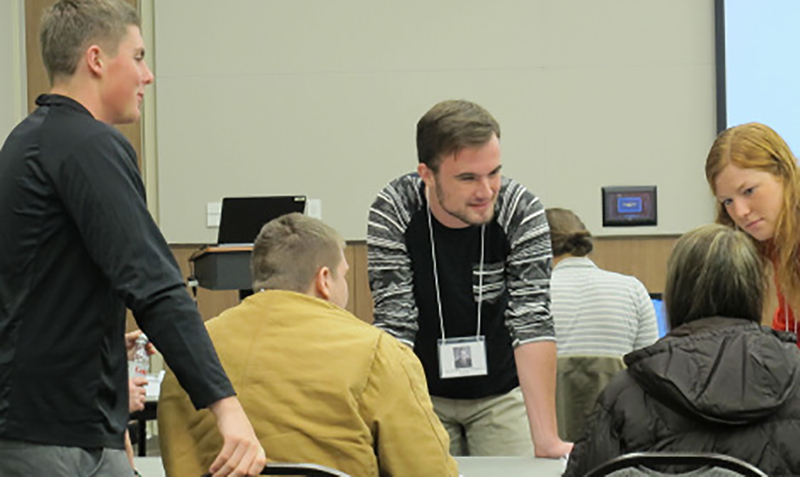202 South Street
Big Rapids, MI 49307
(231) 591-2216
[email protected]
Honors Courses challenge students to engage with the material and think for themselves. We call this 'intellectual autonomy', but what we really mean is quite simple: learning to approach a discipline or question as an expert would---not running off to check the textbook or wikipedia, but rather independently researching the topic and drawing one's own conclusions supported by the evidence.

These courses respect the demands placed on students and are different, not harder. Our electives are structured to fulfill requirements students need for graduation. The Honors program can be flexible to accommodate students bringing in credits by transfer or examination, and individual learning plans that include minors and dual majors.
Honors courses come in at least three kinds--we sometimes refer to 'Honors experiences' because the options are so varied.
Courses in the regular Ferris curriculum that have special sections for Honors students. These courses will cover the same content as the non-Honors sections, but will require all students in the course to exercise their own initiative in grappling with the topic. All of these meet Ferris general education requirements.
Courses offered in the regular Ferris curriculum that have special sections for Honors stduents. These are small, intimate seminars dedicated to investigating a single topic in depth. Taught by Honors faculty, they are often the best classes of a students' career.
Usually reserved for coursework in the major, students can earn Honors credit in a non-Honors course by completing an additional independent project under the direction of the faculty member teaching that course. Honors students frequently use these to get involved with research, and develop the work that will eventually become their Senior Symposium project.
As getting outside ones' comfort zone is a key part of one's intellectual development, the Honors program grants 1 Honors course credit for each qualified study abroad/away experience.

Students in public speaking take part in a "Reacting to the Past" game. Here Richard M. Daly removes protesters from the Democratic National Convention in 1968
Honors courses often include activities that may not be a part of the 'traditional' classroom. Here are a few recent examples
Recent courses offered include